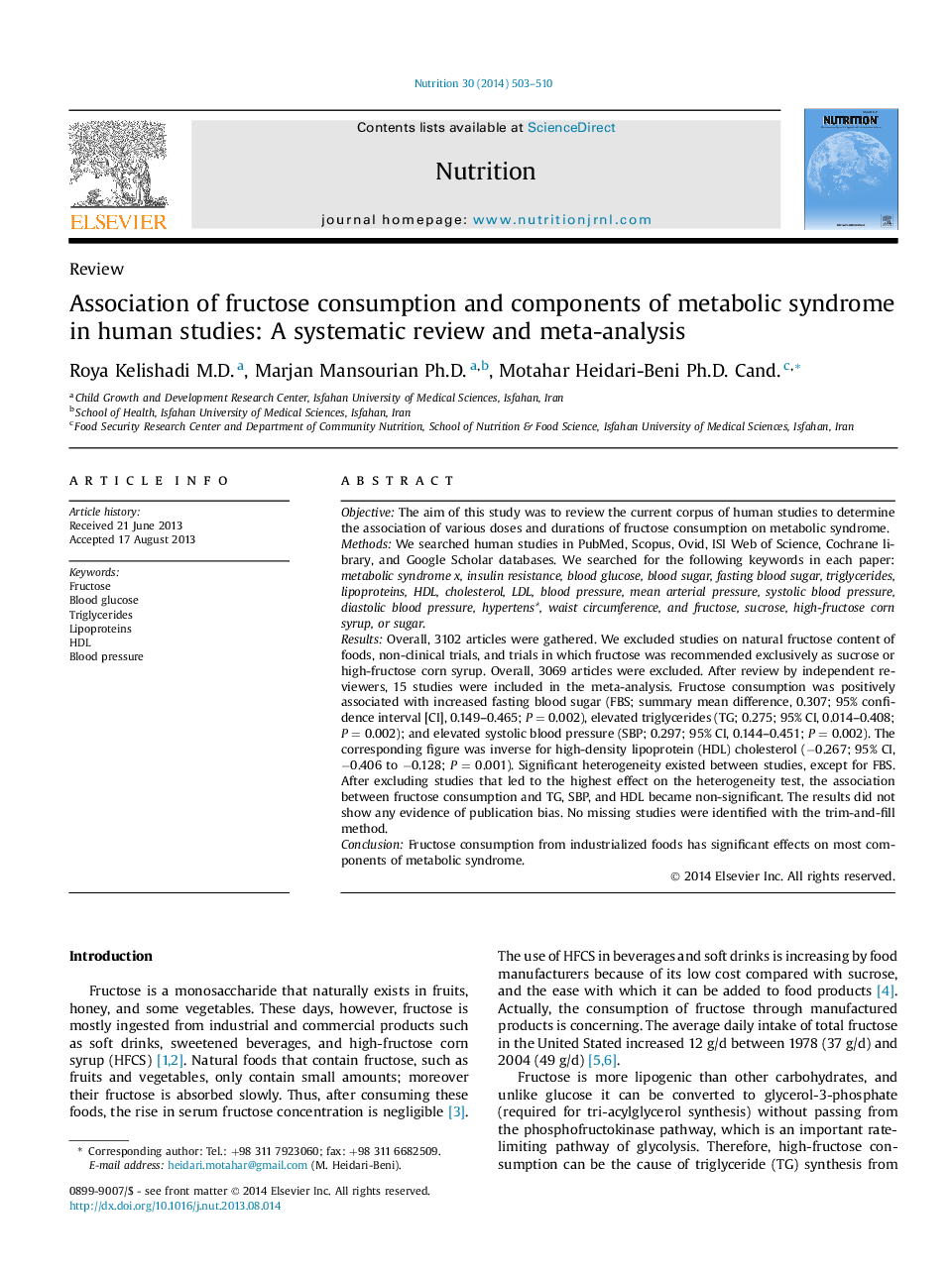| Article ID | Journal | Published Year | Pages | File Type |
|---|---|---|---|---|
| 6089650 | Nutrition | 2014 | 8 Pages |
ObjectiveThe aim of this study was to review the current corpus of human studies to determine the association of various doses and durations of fructose consumption on metabolic syndrome.MethodsWe searched human studies in PubMed, Scopus, Ovid, ISI Web of Science, Cochrane library, and Google Scholar databases. We searched for the following keywords in each paper: metabolic syndrome x, insulin resistance, blood glucose, blood sugar, fasting blood sugar, triglycerides, lipoproteins, HDL, cholesterol, LDL, blood pressure, mean arterial pressure, systolic blood pressure, diastolic blood pressure, hypertens*, waist circumference, and fructose, sucrose, high-fructose corn syrup, or sugar.ResultsOverall, 3102 articles were gathered. We excluded studies on natural fructose content of foods, non-clinical trials, and trials in which fructose was recommended exclusively as sucrose or high-fructose corn syrup. Overall, 3069 articles were excluded. After review by independent reviewers, 15 studies were included in the meta-analysis. Fructose consumption was positively associated with increased fasting blood sugar (FBS; summary mean difference, 0.307; 95% confidence interval [CI], 0.149-0.465; P = 0.002), elevated triglycerides (TG; 0.275; 95% CI, 0.014-0.408; P = 0.002); and elevated systolic blood pressure (SBP; 0.297; 95% CI, 0.144-0.451; P = 0.002). The corresponding figure was inverse for high-density lipoprotein (HDL) cholesterol (â0.267; 95% CI, â0.406 to â0.128; P = 0.001). Significant heterogeneity existed between studies, except for FBS. After excluding studies that led to the highest effect on the heterogeneity test, the association between fructose consumption and TG, SBP, and HDL became non-significant. The results did not show any evidence of publication bias. No missing studies were identified with the trim-and-ï¬ll method.ConclusionFructose consumption from industrialized foods has significant effects on most components of metabolic syndrome.
